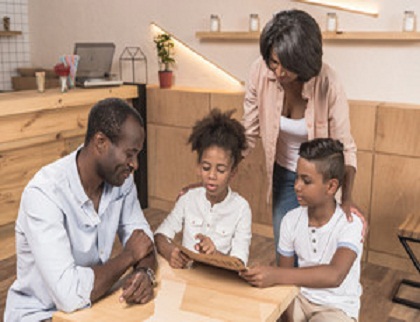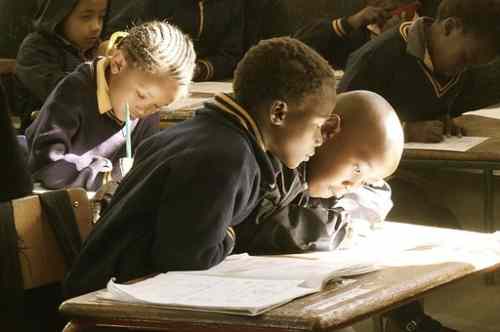How do you read and respond to report cards? Your child’s performance at the end of the term is only one measure of academic success. It is not advisable to judge your child based on one performance or report card. Your response should however be based on how hard (s)he worked, what (s)he learnt and whether or not (s)he improved over the year as a whole.
We asked a teacher here in Lagos for tips on how parents should react to report cards and he helped us with a few guidelines to help you understand how to react to report cards and encourage a positive attitude towards learning that will last through the summer.

How to interpret a report card
When you get the report card, the first thing you’ll likely do is to go over it to check for A’s which will indicate a job well done or C’s and below which will indicate a need for improvement. However, that is not the right approach.
If the report card doesn’t include information about the entire year, go over report cards from previous terms and see if anything has changed. A, B or C grades may be a significant improvement from lower grades in previous terms and should be recognized. Grade declines should also be noted.
In other words, look for trends in which subjects your child thrives upon and which give trouble. In addition, spend time reading teachers’ comments to inform you of your child’s accomplishments.
How to identify problem areas
You can identify the areas a child is struggling by his/her involvement or participation in class activities, assessment, evaluation, his attitude towards school and behavior generally.
How to react to report cards
There are two things to do while reacting to a report card.
1. Have a conversation with your child
2. Speak to the teacher
1. Have a conversation with your child
Note that communication is key. Start off by praising the positive. Congratulate your child not only on A’s but also on getting better grades in subjects you know they have difficulty with. Involve her in discussions about her successes and challenge her to explain how she got a good grade. It’s easy to ask, “What went wrong?” when looking at an unsatisfactory grade but it may be far more beneficial to ask, “What went right?” for a good grade.
[Changing schools – 5 Tips to make the transition easier]
When talking with your child about problem areas, don’t yell or blame her for the grade. Do so in a calm and caring manner. Focus on discussing the class itself. Ask her if the work was too difficult or the class went too fast. If she says she was bored or “hated it,” find out if she thought the class was too easy and ask her to explain her dislikes and try to address them. For example, if math is “useless” and “dull,” find ways in the future to show her how math is used in subjects she loves, from space exploration to shopping to computer games.
Second, ask about homework. Was she getting enough time to complete it or were extracurriculars taking up too much after-school time? Was she distracted from completing work at home?Note that your child needs a special work area at home.
Try to avoid reactions that discourages children like exclaiming e.g “Ha you this lazy girl”, “Oh o you didn’t get it again this time”, “Can’t you see that you are only working on simple addition”.
[The best school for your child – tips to help you choose]
2. Speak to the teacher
Once you’ve evaluated the report card, found out problem areas and gotten enough information from your child. The next step is pretty easy. Email to the teacher copying the Head teacher or meet with the teacher personally. Ask questions. E.g
1. How come my child is still on the same grade this year?”
2. You said my child has a learning challenge how come his former teacher never mentioned it in his previous reports.
3. How can I help my child with reading at home?
The purpose of this meeting is to ensure that your child is a priority to the teacher as well. Parents and teachers have to work hand in hand to make sure that the child gets all the help he needs. Teachers can help if the problem is identified, for instance if the child doesn’t cope well in a large group, they will engage him/ her in a smaller group and if that does now work, they’ll try one on one lessons.




